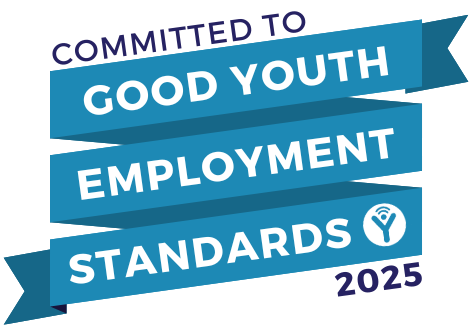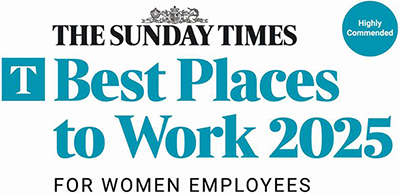Over the last decade, the Science Industry Partnership (SIP) can be proud of several important achievements – all of which are underpinned by the power of collaboration and have demonstrated that great things can be achieved when like-minded people come together, share best practice and focus on moving forward.
With the support of industry partners such as Kate Barclay at the BIA, no fewer than 17 new apprenticeship standards were developed in collaboration with employers. Notable among these, the L7 Bioinformatics apprenticeship was developed – opening up a new and exciting area to many learners – as was the clinician scientist programme, an important collaboration with Kings College London.
Given how important it is to reflect the views of employers across the life sciences sector, trade associations (specifically the BIA and ABPI) make a vital contribution and they work hard to maintain engagement across the sector.
Under the stewardship of Liz Greenfield, the number of SIP Ambassadors – who do crucial work in classrooms reaching out to the next generation of young talent and exciting them about a career in science – has increased dramatically, from around half a dozen to more than a thousand. Across the country, young people are starting apprenticeships, spreading the word about their value as a route into a career while gaining first-hand, paid experience in industry, and sharing their enthusiasm with their peers. It’s really rewarding to see a dynamic, vibrant group of people taking ownership of their futures.
This also points to one of the ways in which SIP has added value to its members and the wider industry. In recent years, apprenticeship starts across science employers flattened out after a period of growth. Employers’ efforts to address this came amid an enormously challenging backdrop of firstly the social and economic impact of the Covid pandemic, followed by the effect on underlying costs and other issues coming as a result of the dreadful conflicts in Ukraine and the Middle East. It is by striving to make progress even in the face of such strong headwinds which is underlines how important a force the SIP has been.
Looking more closely at regional activities, the SIP is supporting employers at the grassroots and we can be proud of this as an exemplar of how we can continue to have a greater impact on the industry. For example, we have recently trained Ambassadors in carrying effective careers outreach work at sites in Cambridge and Macclesfield with AstraZeneca, areas which are home to life science hubs that foster a range of innovative and dynamic start-ups and scale-ups.
Around 15 years ago I had a ‘lightbulb moment’ when I visited a GSK site in Ulverston with senior colleagues. We met around half a dozen engineering graduate apprentices – the majority of whom were women – and being blown away by their level of skills and their enthusiasm. Their employer then asked the site’s head of HR to scale up their apprenticeship programme to other sites around the country. To say this was successful would be an understatement: GSK went from having around a dozen apprenticeships, mainly in engineering, to more than 300 today across a range of roles. The vast majority are at graduate or postgraduate level, and the company now have approximately equal numbers of apprentices, undergraduate placement students and CASE awards studying for their PhDs.
In 2018 the government launched an industry partnership pilot scheme to promote apprenticeships in different sectors, including aerospace, tunnelling, creative services, automotive, IT and science. I negotiated the latter with the UK Commission on Employment and Skills, which operated on behalf of central government. We secured £32.6 million for a two-year pilot to underpin the highly successful science industries in England. At the end of the pilot, once the funding had dried up, I thought that company interest in apprenticeships would wane. But that couldn’t have been further from the truth – instead, they wanted to support a subscription model to maintain the drive to develop more apprentices, which is still a successful model more than 10 years on.
One of the most significant developments in recent years is the replacement of the Apprenticeships Levy with the new Growth and Skills Levy. The new initiative will allow businesses to pay for apprenticeships and training programmes to develop their workforce – giving employers the greater flexibility over funding in this area which they’ve been calling for in recent years. While the Apprenticeship Levy served a purpose, employers were divided – some even considered it a stealth tax. While it remains to be seen exactly what impact the new system will have, the changes have been welcomed by industry.
In recent years, frequent changes in skills policy – driven by the revolving door of ministers – has no doubt hindered employers, who require a consistent and stable policy landscape which aids long-term planning. Since 2001, the UK government had 17 different government ministers with responsibility for skills, while the responsibility for science has changed hands almost as frequently. But there have been encouraging signs from the new government about how it will support employers and the wider skills system as they seek to build the science workforce of the future.
Indeed, the government recently published the Modern Industry Strategy, which lists eight sectors which will be supported in driving growth in the UK economy. Currently, SIP has supported apprenticeships in four of the areas: life sciences is at the forefront, along with clean energy industries, advanced manufacturing, and digital technology.
Through the SIP, the ‘ask’ from employers is clear: more stability, fewer changes of policy direction, and increased flexibility in the use of the levy. As always, we stand ready to work with ministers to drive forward the kinds of changes that employers have long called for and we are confident about our industry’s ability to play an ever-more important role in delivering the growth agenda.
Our world-leading universities, research institutes and training organisations also have a huge role to play here. Employers need two key things: firstly, new innovations that can be further developed in industry and pulled through into the market; and secondly, people with the skills to deliver these new, innovative products.
Links between industry and academia are also crucial because technology development often requires changes in the skills needed to underpin an industry as it grows and evolves. Technological developments will often move quicker in industry than in the academic sphere – so we must develop strong and early relationships, such that training providers deliver learners who are ready to enter the workforce. Across the UK, the science industry workforce is small compared to some sectors – but the gross value added for each science employee is much higher than the average across the country.
Looking back over my ten years as Chair of the SIP, it has been a real pleasure working with the three fantastic leaders – the outgoing Chair of Cogent Skills, Joanna Woolf, the organisation’s Chief Executive, Justine Fosh, and the driving force of the organisation, Tina Sawyer – as well as all the other talented, hard-working staff.
Working closely with industry and guiding employers through the bureaucracy surrounding apprenticeships has been key to the success of the SIP and where I believe it has added enormous value to the sector. The ambition was, and still is, to transform the capabilities of the science based workforce so that the skills keep pace with developing platform technologies, and to use skills development to drive growth and innovation to the benefit of UK industry.
I would like to thank the members of the SIP Board and the numerous task and finish groups over the years who have been selfless in their commitment to promoting and expanding apprenticeship. What could have so easily been a talking shop has, rather, been absolutely focussed on delivery. I’m extremely grateful for that – and I know our brilliant industry is too.







